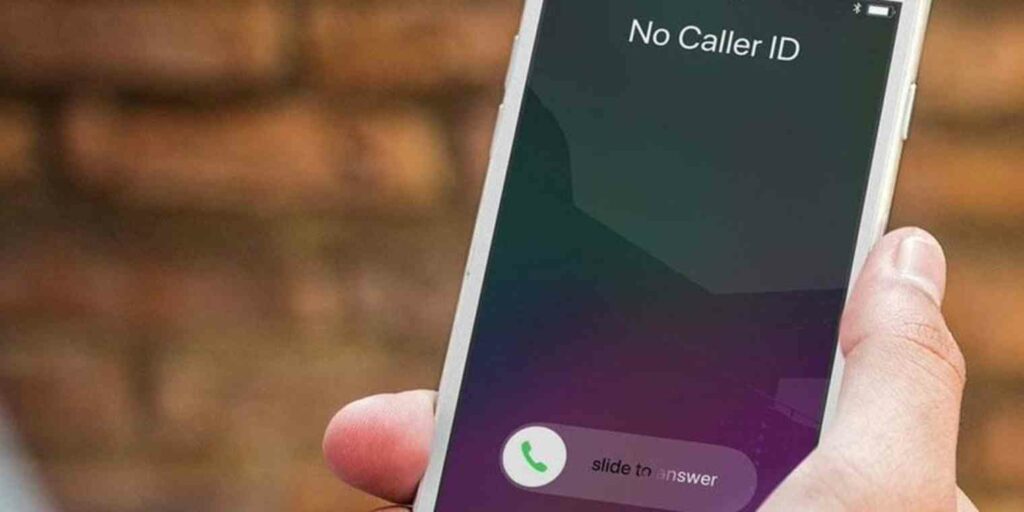In today’s digital age, the constant barrage of spam calls has become an all-too-common nuisance for millions worldwide. It’s a robotic voice peddling dubious products and a fraudulent attempt to extract personal information.
“8474268085” seems to be a phone number. Be cautious when dealing with unfamiliar numbers to prevent potential spam or scams. Consider using call-blocking features or apps to avoid unwanted solicitations from unknown callers.
This discussion is advancing, and I’m restless to dive further into experiences concerning this remarkable stage.
Understanding Spam Calls – Learn more with just one click!
Before delving into strategies for handling spam calls, it’s vital to comprehend their nature and mechanisms. Spam calls, alternatively labeled as robocalls or nuisance calls, represent unwelcome intrusions facilitated by automated dialing systems.

These computerized systems indiscriminately dial phone numbers, aiming to connect with individuals for various purposes.
Typically, spam calls entail disseminating pre-recorded messages or the immediate transfer to live operators. The content of these calls ranges from solicitations for products or services to outright scams designed to defraud unsuspecting recipients.
The overarching goal is often to elicit a response from the recipient that benefits the caller, whether through a purchase, provision of personal information, or participation in fraudulent schemes.
Understanding the operational dynamics of spam calls is integral to formulating effective countermeasures. By recognizing the automated nature of these calls and the diverse tactics employed, individuals can adopt proactive strategies to mitigate their impact.
From implementing call-blocking technologies to exercising caution when engaging with unknown callers, informed awareness empowers individuals to safeguard themselves against the pervasive nuisance and potential risks posed by spam calls in today’s digital landscape.
The Operational Dynamics Of Spam Calls – Let’s Talk Bout It!
Identifying spam calls can pose a challenge, particularly as scammers continually refine their strategies. Nonetheless, several telltale signs can help you discern a spam call from legitimate communication:

1. Unknown or Suspicious Numbers:
Exercise caution when receiving calls from unfamiliar or suspicious numbers. These calls often originate from undisclosed or questionable sources, signaling a potential spam attempt.
2. Automated Messages:
Robocalls frequently employ automated messages, urging immediate action or offering enticing prizes or services. Recognizing the robotic nature of the voice and scripted content can help identify these calls as spam.
3. High-Pressure Tactics:
Spam callers often resort to high-pressure tactics to coerce individuals into divulging personal information or making swift purchases. Be wary of callers who employ aggressive or urgent language, as these may indicate fraudulent intentions.
4. Unsolicited Offers:
Exercise caution when presented with unsolicited offers, especially if they appear too good to be true. Scammers often use enticing offers to lure unsuspecting individuals into their schemes.
By remaining vigilant and attuned to these red flags, you can minimize the risk of falling victim to spam calls and protect yourself from potential scams. Utilizing call-blocking technologies and practicing skepticism towards unfamiliar callers can further enhance your defense against unwanted solicitations.
Read Also: A Prueba De Hombres Pelispedia – Let’s Check It Out!
Effectively Dealing – Find out everything you need to know!
Now that you can identify spam calls, it’s crucial to know how to handle them effectively:

1. Avoid Engagement:
To safeguard against potential risks, refrain from engaging with spam callers or disclosing personal or financial information. If a call raises suspicions, promptly terminate the conversation by hanging up. This proactive approach helps mitigate the likelihood of falling victim to fraudulent schemes or identity theft.
2. Block the Number:
Leverage the native capabilities of smartphones to block specific numbers. Following a spam call, contemplate blocking the number to prevent subsequent unwanted calls from the same source, enhancing your defense against intrusive solicitations.
3. Explore Call-Blocking Apps:
Explore the variety of call-blocking apps accessible for smartphones. These tools automatically detect and block spam calls, effectively defending against unsolicited solicitations and bolstering the overall protection of your privacy and peace of mind.
4. Report Spam Calls:
Proactively report spam calls to relevant regulatory agencies, such as the Federal Trade Commission (FTC) or the Federal Communications Commission (FCC). By writing these calls, you contribute to collective efforts to combat spam and safeguard consumers.
Read Also: A Private War Pelispedia – Get Immersed In The Narrative
Utilizing Technology to Combat Spam Calls – know it now!
Advancements in technology have empowered consumers with tools to combat spam calls more effectively than ever before. Caller ID apps such as Truecaller and Hiya leverage extensive databases to identify incoming calls and alert users to potential spam or fraud.

These apps provide real-time information, enabling users to decide whether to answer or ignore calls. Many smartphones now offer robust call-blocking features, allowing users to block specific numbers or activate filters to screen out potential spam calls.
This proactive approach helps users avoid unwanted interruptions and protect their privacy. Furthermore, some phone carriers implement network-level call blocking, automatically intercepting and blocking known spam calls before they reach users’ devices.
This network-level protection adds an extra layer of security, reducing the likelihood of receiving spam calls. By leveraging these technological innovations, individuals can significantly reduce the frequency and impact of spam calls on their daily lives, ensuring a more enjoyable and secure communication experience.
Government Initiatives and Consumer Protection – let’s read it!
Government agencies have taken steps to address the pervasive issue of spam calls, recognizing their widespread impact on consumers. One significant initiative is the National Do Not Call Registry, overseen by the Federal Trade Commission (FTC).

This registry enables consumers to opt out of receiving telemarketing calls from legitimate companies. While it may not eliminate all spam calls, it is a valuable tool for reducing the volume of unsolicited calls received. It allows individuals to regain control over their phone lines.
In addition to the National Do Not Call Registry, regulatory agencies such as the Federal Communications Commission (FCC) and the FTC actively enforce regulations designed to curb spam calls and hold violators accountable.
These agencies conduct enforcement actions and impose fines on individuals and organizations found to be engaging in illegal or abusive calling practices. By imposing penalties and sanctions, they seek to deter future violations and promote compliance with established rules and guidelines.
Through these initiatives, government agencies strive to protect consumers from the nuisance and potential harm caused by spam calls. By providing regulatory oversight and enforcement mechanisms, they aim to create a safer and more secure telecommunications environment where individuals can communicate freely without intruding on unwanted solicitations and fraudulent schemes.
Read Also: Can I Watch “A Cinderella Story If Shoe Fits” On Pelispedia. Tv? – Guidebook In 2024?
Conclusion:
Spam calls are a big problem in today’s connected world. But you can take control. Understand these calls, use tools to block them, and know your rights. With technology and protection, you can lessen the annoyance of spam calls.
FAQs:
1. Can I prevent my number from being targeted by spam callers?
While it’s challenging to entirely prevent your number from being targeted by spam callers, you can minimize risks by sharing your phone number online, avoiding answering calls from unknown numbers and utilizing call-blocking features on your device.
2. Are there penalties for violating “Do Not Call” registry regulations?
Yes, violations of the National Do Not Call Registry can result in significant penalties for telemarketers and businesses, including fines imposed by regulatory agencies such as the FTC. Enforcement actions aim to deter unlawful telemarketing practices and protect consumers’ privacy rights.
3. How can I report spam calls to authorities?
You can report spam calls to regulatory agencies such as the FTC, FCC, or your state attorney general’s office. Additionally, many phone service providers offer options to report spam calls directly through their platforms or apps.
4. Is it possible to stop spam calls completely?
While it’s unlikely that spam calls will be eradicated, concerted efforts from regulatory agencies, technological advancements, and consumer awareness initiatives can help mitigate their prevalence and impact over time.







